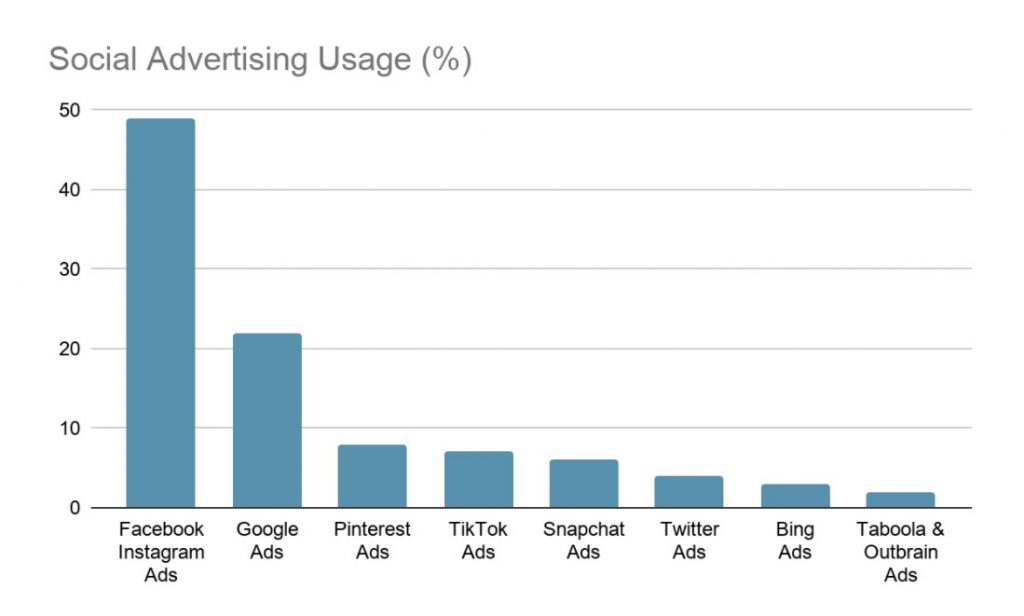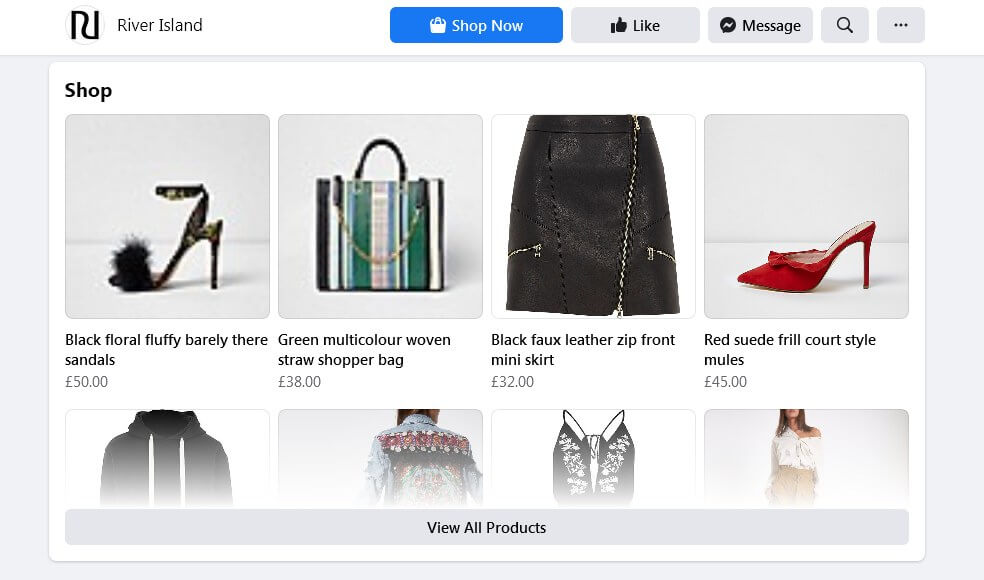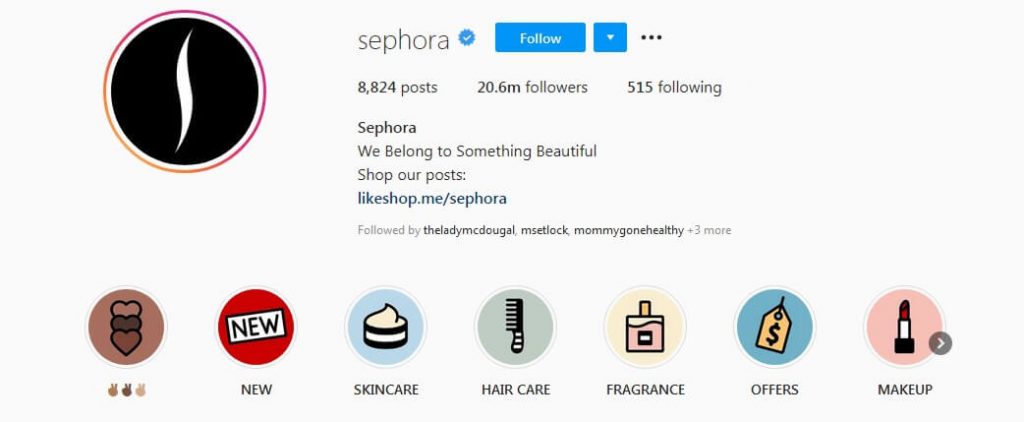
Social Commerce Benefits: 5 Reasons You Should Sell Through Social Channels (+ Inspiring Social Commerce Examples)
Social Commerce Benefits: 5 Reasons You Should Sell Through Social Channels (+ Inspiring Social Commerce Examples)What is social commerce?
Digital transformation is changing everything. It is shaping almost every aspect of our lives, constantly affecting how we eat, sleep, work and even interact with one another. While the average person spends almost 2.5 hours a day scrolling through their feeds on Facebook, Instagram, Twitter and many more, social platforms have long become more than just a place for people to engage with others.
One major example is the growth of social advertising, offering all types of businesses reach their potential customers using customized ad campaigns and detailed targeting; ads are dominating our feeds as more and more businesses put the use of social advertising on top of their marketing strategy.
Our data from more than 4,000 ecommerce store owners who use BeProfit to track and analyze their profits and expenses tells us that almost 50% advertise on Facebook and Instagram, while 22% use Google Ads. Pinterest Ads comes in third with 8%, followed by Tiktok Ads (7%) and Snapchat Ads (6%).

Recently social media platforms are taking advertising one step further by allowing their billions of users to actually shop within their platforms, in an effort to play an even more crucial role in the customer journey funnel.
Social commerce benefits for your business
If we got used to seeing an ad, clicking on it and then being directed to the advertiser’s website, we can now actually search for products or services and complete our purchase within these platforms.
The term Social Commerce describes just that, changing the way we buy and sell (did we say intuitive shopping?), and making the online shopping experience faster and more comfortable. Social media users can now remain within their comfort zone and purchase their goods without the ‘effort’ of being directed to an external website.
5 Reasons you should sell through social channels
1. Increase engagement with your audience
One of the most important and valuable benefits of social commerce is about strengthening your brand and connecting with your audience.
While your potential clients are scrolling through your products or services, they can actually comment on products, review comments of others and directly interact with your brand, which makes the whole shopping experience much more social, as opposed to a more personal experience provided on your website.
2. Optimize the consumer journey
Think about it. The most common consumer journey funnel involves your clients seeing your online ad, clicking on it, then going to your website, adding products to their cart, filling in their payment details and only then completing their purchase. It’s a pretty long process involving many steps along the way and too much distraction.
Selling directly on social platforms dramatically shortens this process and lowers the chances that your potential customers will lose their attention on the way.
3. Increase conversion rates and sales
Social commerce helps you grow your brand, build trust with your audience and ultimately increase your sales. Potential clients are far more likely to make a purchase when they get feedback on a certain product from real people who actually used it before.
As customers can directly like and leave comments on your products, chances are that sales will increase too. Moreover, social commerce serves as an efficient customer support tool, as online store owners can directly engage with their audience, answer their questions and provide assistance in real time, all of which serve the main goal of increasing sales.
4. Track your data more accurately
Many ecommerce sellers will agree that tracking their business metrics, as well as the efficiency of their ad campaigns in particular, is not an easy task. To make the most of their ad campaigns, business owners who use social platforms to advertise their brand or products need to constantly measure its effectiveness, or even face their technical fears (for example by implementing their Facebook pixel on their website for optimal tracking).
Direct selling on social platforms makes KPIs tracking much simpler using a dedicated tracking dashboard, for example Facebook’s Commerce Manager, which lets you manage your catalog and sales, and tells you exactly how many people reached your products, engaged with them or actually made an order. Together with other valuable insights, social ecommerce makes the process of tracking your business metrics even more effective.
5. Expand your audience reach
News spread on social media like fire, and in terms of social commerce, this is something that plays in your favor. After completing a purchase, users can actually share their experience (hopefully together with a positive review) with their followers and friends, increasing your brand awareness as well as the chances of other users to reach your products and make more orders. Those being exposed to your products may not make a purchase at first look, but who knows, they may remember your brand next time they bump into your store.
Inspiring social commerce examples
River Island
River Island is one of the most well known London-based fashion brands, established over 60 years ago and showing a strong social media presence with more than 2 million followers on Facebook. Although River Island has a beautiful ecommerce website, they make sure to leverage Facebook’s social commerce option as well by offering different types of clothing, from occasional wear to bags and other accessories, all which you can find within their virtual shop on Facebook.
Shoppers can get insights on the products they’re interested in, ask questions and gather all the information they need before they move to checkout.

MVMT watches
Founded in 2013, MVMT watches is an American watch company that sells quartz watches, sunglasses and different accessories. With more than 60,000 followers and over 7 million monthly views on Pinterest, MVMT Watches leverages the conversion capabilities of promoted Pinterest pins which results in the highest average order value they have received from any traffic source. Shoppers can scroll through deliberately picked products, which leads to more clicks, allowing them to pick their favorite choice and proceed to checkout where they can customize their item and complete the orders in just a few moments.

Sephora
Sephora is an international retailer of personal care and beauty products founded in 1970. The company features thousands of brands and offers items of cosmetics, skincare, body and more. Sephora is fully taking advantage of social commerce Instagram, including the ‘tap to shop’ and product tagging functionalities. These Instagram features are basically turning the company’s feed a live catalog by making every item on every image shoppable. Sephora combines product tagging with user-generated content to gain maximum credibility and makes the best of what Instagram has to offer.

Get a slice of the social commerce pie
In this article we’ve listed a few social commerce benefits to consider when planning your marketing strategy. Social commerce is yet another phase in the evolution of social platforms, and implementing its best practices can help you improve various aspects of your business to ultimately optimize your sales and grow your online store. If you already own a page or even advertise on leading social platforms, why not take it one step forward?

